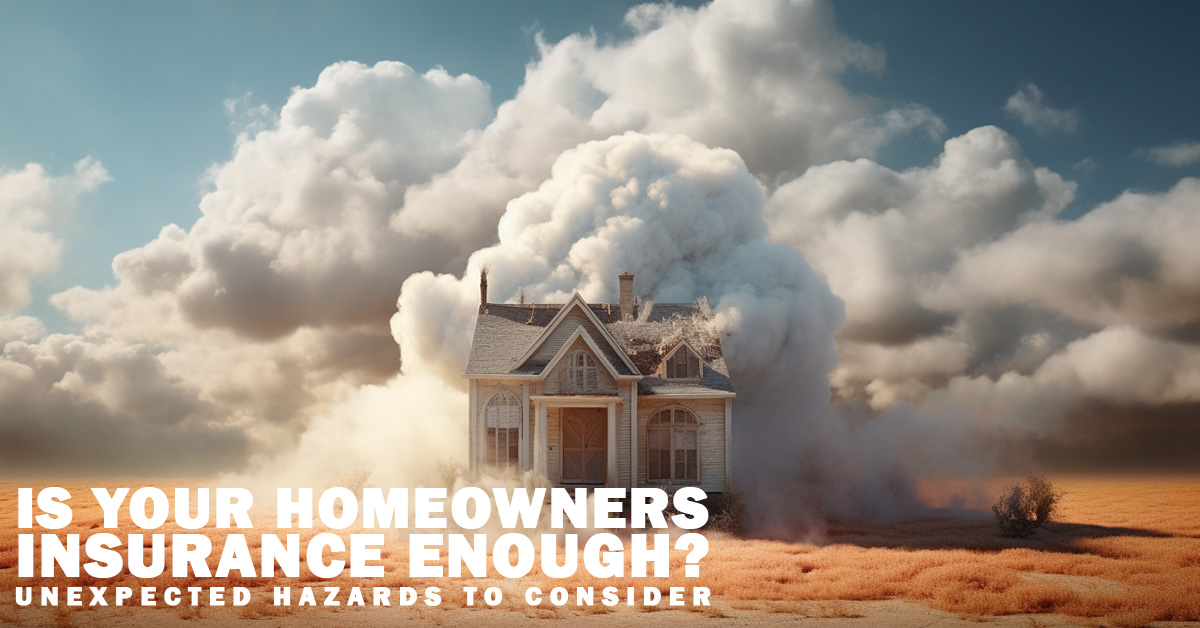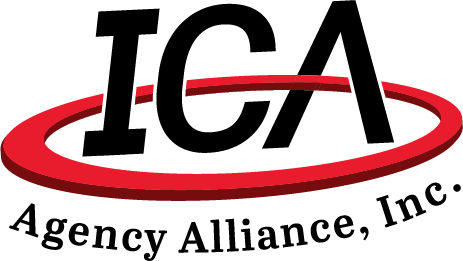Unexpected Home Hazards: Is Your Homeowners Insurance Enough?

Unexpected Home Hazards: Is Your Homeowners Insurance Enough?
Life is full of surprises, and some of them can be unpleasant, like discovering that your homeowners insurance doesn’t cover a certain type of damage. It’s important to know what is and isn’t covered so you can be prepared for the unexpected.
Here are some common home hazards that may or may not be covered by basic homeowners insurance policies:
- Flooding: Flooding is not automatically covered under a homeowners’ insurance policy. You need to purchase separate flood insurance, which can be done through a government-sponsored program (FEMA) or through a private insurance company.
- Earthquakes: Earthquakes are also not typically covered by homeowners insurance. You need to purchase separate earthquake insurance, which can be done through most insurance companies.
- Sinkholes: Sinkholes are another type of hazard that is not typically covered by homeowners insurance. You need to purchase separate sinkhole insurance, which can be done through some insurance companies.
- Tsunamis: Tsunamis are not typically covered by homeowners insurance. You need to purchase separate flood insurance, which can be done through a government-sponsored program (FEMA) or through a private insurance company.
- Wildfires: Wildfires are typically covered by homeowners insurance, but there may be some exceptions depending on your location and the specific policy you have.
- Terrorism: Damage from terrorism is typically covered by homeowners insurance.
- Meteorites: Surprisingly, damage from meteorites is typically covered by homeowners insurance.
It’s important to note that coverage for these hazards can vary depending on your insurance company and your policy. Be sure to review your policy carefully with your insurance agent to understand what is and isn’t covered.
If you’re concerned about a particular hazard, such as flooding or earthquakes, you can purchase additional coverage to protect your home and belongings. Your insurance agent can help you choose the right coverage for your needs and budget.
Don’t wait until it’s too late to find out if your homeowners insurance is enough. Contact your insurance agent today to review your policy and make sure you have the coverage you need.
Here are some additional tips for protecting your home and belongings from unexpected hazards:
- Make sure you have adequate homeowners insurance coverage. Review your policy with your insurance agent to make sure you have the coverage you need for hazards like floods, earthquakes, and wildfires.
- Take steps to prevent damage from hazards. For example, you can install flood vents in your home to reduce the risk of water damage from flooding. You can also trim trees around your home to reduce the risk of damage from wildfires.
- Have a plan in case of a disaster. This plan should include where you will go and what you will do if your home is damaged. You should also have a list of important documents and belongings that you can take with you if you have to evacuate.
By taking these steps, you can help protect your home and belongings from unexpected hazards.



